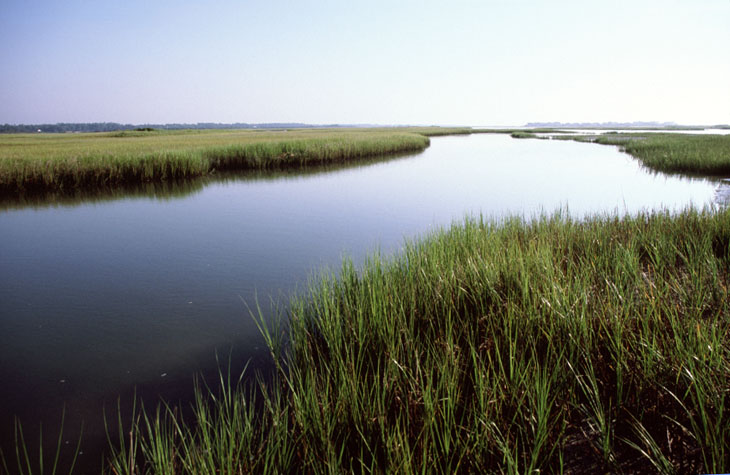Hey! Carl Zimmer has been inspired by one of my posts!
Didn’t give me credit, though…
Hey! Carl Zimmer has been inspired by one of my posts!
Didn’t give me credit, though…
Well, it’s my 500th post, provided you ignore some deleted update markers and having to rebuild the blog long ago when the last software failed to perform, and the idea that everything I write goes through a few drafts. But anyway, it’s an important milestone, since it’s halfway to 1,000 posts, which is where I actually get readers, right? Nice round number, a multiple of the number of fingers we have but otherwise not as nicely divisible as binary-based systems…
Anyway, in honor of this remarkable achievement of self-absorption, I’m simply going to redirect you to The Oatmeal, who takes a subject I’ve covered earlier (mostly by redirecting to someone else then, too) and tackles it in his own inimitable way. Or maybe not, since I can’t remember what ‘inimitable’ means – I think it means either inscrutable or ineffable.
Whatever. Go here. It’s cool.

Edit: I’d already used “part eight” on a previous post and missed it, so this has been renamed.
I have a small collection of school presentations that I’ve put together, primarily about arthropods – life cycles, feeding habits, camouflage, and so on. For one of them, I have pretty much everything about lady beetles illustrated, save for just one thing: a photo of one with the elytra (wing sheaths) raised and the wings extended. I have one crappy image obtained by chance several years ago, but I wanted a sharper and more detailed one, since this is something that few people get to see. Now, let me enumerate the activities of a nature photographer.
Lady beetles (genus Coccinellidae) fly for particular reasons, but more often arrive where they intend to be (such as a food source) and then remain, sometimes for days; their defenses include a shape that’s difficult to get under, a hard chitin, and the ability to exude foul-tasting hemolymph, so they rarely have to fly to escape threats. This means that observing even a colony of lady beetles waiting for one to take off is an exercise approaching pointlessness – especially when you need macro magnifications which translate to extremely tight focus. Pick one and stay with it, because you won’t lock focus on any other in time to capture the action. Lady beetles raise their elytra only a fraction of a second before launching into the air, so timing has to be impeccable.
There’s a small workaround, however. Holding a lady beetle in your hand can induce it to fly fairly dependably – they know when they’re not on a hospitable surface. Chances are, they’ll climb to the highest point on your hand and almost immediately launch themselves into space, so it’s possible (emphasis here) to control the conditions and nail this behavior. In fact, this should be easy, right? Simply capture a lady beetle and keep the camera focused on your fingertips waiting for the takeoff. No sweat.
This is where theory and practice clash. Lady beetles do not always take the shortest path directly to the highest point, and may pause an indeterminate time when they arrive. Focus has to be bang on, and tripping the shutter too soon might mean a delay while the flash recharges (do not even entertain the thought of trying this without a strobe) which is always when the beetle will take off. Macro work is indeed controlled by certain fates, including the best behavior happening while the strobe recharges and a wicked breeze starting up just when you’re tackling a subject that moves easily in the wind. If you happen to pursue this outdoors in a nice natural setting, you have but one chance at the image before the beetle has flown off.
 I spent the winter simply waiting for the reappearance of the lady beetles, and with the spring have captured the first few specimens to emerge, taking them into the bathroom and trying to get the shot I wanted therein (small space, no hiding spots, easy to recapture my model.) Holding the camera in one hand and the beetle in the other, I struggled to maintain the precise distance between each for sharp focus, as the lady beetle wandered around, to be ready for the key moment, that 0.1 seconds of the exact pose I needed before my model disappeared from sight (generally to land on the window screen and be recaptured.) Most of what I got was what you see here; just a fraction of a second too late (or I’m extremely narcissistic about my fingertips – your call.)
I spent the winter simply waiting for the reappearance of the lady beetles, and with the spring have captured the first few specimens to emerge, taking them into the bathroom and trying to get the shot I wanted therein (small space, no hiding spots, easy to recapture my model.) Holding the camera in one hand and the beetle in the other, I struggled to maintain the precise distance between each for sharp focus, as the lady beetle wandered around, to be ready for the key moment, that 0.1 seconds of the exact pose I needed before my model disappeared from sight (generally to land on the window screen and be recaptured.) Most of what I got was what you see here; just a fraction of a second too late (or I’m extremely narcissistic about my fingertips – your call.)
Lady beetles do seem to have a certain pattern recognition: after a couple of attempts, they’ll simply tuck in and refuse to do anything, sitting as if dead in your palm. Once on the window screen, they tend to hang on tightly and are difficult to dislodge, and may even get into the little gap between screen and frame where they’re challenging to extract (not to mention coating themselves in dust rather unphotogenically.) Each attempt can end up taking several minutes, a tense build-up to, generally, a complete failure.
And yet, patience may win out. Eventually, you get your timing down and actually capture the beetle in midair just after launching and…

…WHERE ARE THE GODDAMNED WINGS?!?! Seriously, they’re smoky-colored and twice the length of the elytra – where the hell did they go?
Oh, sure, the pose is adorable, with the little bowed hind legs hanging down and the hunched wing sheaths – how often do you think you can capture an insect photo that spells out “Wheee!” so well? There’s even dislodged dust from the screen in the air! But holy shit, is it too much to ask to actually have the prominent wings in a photo of a flying lady beetle? Just… one… image to complete the presentation – I’m a nature photographer, I should be able to obtain this, right?
Yes, in a fit of generosity/stupidity I’d released the beetle once I’d confirmed in the camera’s LCD that I captured it in midair, and I didn’t realize the lack of this pertinent detail until I’d uploaded the images to the computer. So it’s going to take capturing another to try again (a previous attempt had run into strobe issues, so I’d released that specimen too.) It’s one thing to get images of whatever you might happen across, maybe with a little planning, and yet another to try for a specific type of image or behavior – this quest has been going on for months now, with a species that really isn’t rare at all. So my message to any budding nature photographers here is, have a better grasp of your patience and frustration than I have ;-)
 There were two things that prompted me to read this book: an interest in the curious history of psychic research within the US military, and the reputation that the author seems to have in skeptical circles. I’ll skip the dramatic buildup by saying that the book failed to address either of these.
There were two things that prompted me to read this book: an interest in the curious history of psychic research within the US military, and the reputation that the author seems to have in skeptical circles. I’ll skip the dramatic buildup by saying that the book failed to address either of these.
The Men Who Stare at Goats, by Jon Ronson, is an account of Ronson’s investigation into various rumors about military research including, as hinted by the title, the attempts to stop the heart of a goat solely by concentrating on the task. If you’ve seen the movie, it’s better to simply disregard it; it bears as much resemblance to the book as Blade Runner bears to Philip K. Dick’s Do Androids Dream of Electric Sheep? The book goes into much deeper and more ominous territory, probing the potential connections between the new age spiritual kind of stuff (seen in the movie) and the actions of the armed forces in Guantanamo Bay and Abu Ghraib.
However, the book might better have been titled The Men Who Claimed They Stared at Goats, because the research Ronson exhibits within is superficial in the extreme, and almost entirely based on hearsay and personal interviews. The few examples where anyone could actually find documentation (for instance, Heaven’s Gate and the MK-ULTRA investigations) appear at first to lend some weight to the whole edifice, but only if one assumes that Ronson has made supportable connections.
Let’s start from the beginning. Early on he examines the efforts of several figures, primarily Jim Channon, in establishing a new approach to military thinking in the wake of the Vietnam war. This approach centered around peaceful and harmonious attitudes, avoiding conflict and preventing unnecessary violence; you can be excused if you boggle at the idea of anyone trying to sell this idea to the military. Channon’s ouevre is the First Earth Battalion’s Operations Manual, apparently just brimming with the kind of ideas normally espoused by women named “Starbreeze” who wear burlap dresses and have never encountered a hairbrush. It’s not the existence of the manual that deserves attention, however; it’s the claim that not only did the Army pay Channon to produce it, they apparently adopted several ideas from it into various policies and practices.
Ronson interviews numerous people, virtually always on the recommendations of a previous one, and it is here where his reputation appears to be most undeserved. Not one of his subjects demonstrates even a passing ability to perform their claimed specialty, but nearly all of them produce someone else who will have a more convincing story or ability, to which Ronson scampers off. Their failures are observed only in passing, which could potentially be explained as a dispassionate objectivity if one ignores two things: first, that he is fulfilling the role of an investigative journalist while not even asking the questions the average person would ask, such as, “Well, can I see the videotape where you did kill the hamster with your mind?” And the second, more damning point, is that he wrote an entire book trying to establish a connection. The whole premise is the huge question he raises about the practices of the US Army while never asking the little, obvious questions that would have damaged this connection. This isn’t remotely related to critical thinking, only to sensationalism.
To be fair, Ronson does list many of the failures of his interview subjects, and even displays how some of these failures lead to serious ethical considerations and repercussions. Yet this point is easy to lose in his quest for a bigger story, leaving behind those who didn’t qualify in pursuit of the finalists. We get the impression, almost breathlessly recounted, that these disappointments are masking (or even highlighting) the Really Astounding Truth. This is a theme, and attitude, that is prevalent in books devoted to UFOs, yetis, and government conspiracies, and it is visible in this one right from the first chapter – not an auspicious start, especially when Ronson glosses over the weakness of the personal accounts and fails to substantiate any claim made. He hopes to imply that, while leading nowhere, nevertheless these accounts lead towards his implied findings.
The big reveal is the consideration of the ridiculous practices of Abu Ghraib et al and their potential relation to the First Earth Battalion ideas – except, Abu Ghraib didn’t have much to do with peaceful and harmonic practices, did it? To explain this, Ronson has established a line of progression, from happy thoughts to influencing others subconsciously to the use of subliminal messages (no, seriously) to the psychological abuse of Iraqi detainees. The problem is, most of this progression is supported solely by the same subjects that failed to prove their abilities and barely established any connection whatsoever with the armed forces. The trail dies out entirely before Ronson brings up Abu Ghraib out of the blue, implying that here sits the culmination of this peculiar research into paranormal ability.
This has a bare potential to be correct, especially if you follow only Ronson’s reasoning. If anyone considers that psychological warfare is hardly a new idea, and sleep deprivation and discordant noises have been used for centuries, and that every last avenue examined along the First Earth Battalion line of investigation failed entirely, the connection becomes highly implausible. The entire book starts to resemble a classic conspiracy theory, with substantial scaffolding erected to support the curious idea that the US Army continues to believe in paranormal abilities.
Worse are all the inconsistencies that can be found if anyone pays attention. In their first meeting, Guy Savelli (the man who killed a hamster with his mind,) is cagey with Ronson, later admitting that his military contacts warned him to be careful with this reporter. By the end of the book, when Savelli is being re-recruited for more research, he seems to believe that his military contacts will not be bothered by the perpetual blathering of details to the same reporter. Ronson spends a lot of time establishing that Frank Olson was purposefully assassinated when it seemed he was going to leak information about the CIA’s use of LSD for interrogation, yet a laundry list of people throughout the book not only speak freely to Ronson, some of them demonstrate both healthy military pensions and claims of being brought back in for further research. [This trait is frequently demonstrated in UFO circles, which need witnesses with security clearances who know all the big secrets and could be silenced at any time, yet routinely appear at conventions and radio interviews.] Ronson repeatedly talks about how embarrassing Ed Dames’ flapping mouth is for the military, though the only person who seems to be embarrassed is the retired general who tried to walk through walls (ponder that one for a bit.) Norman Cournoyer refuses to confirm his big secrets to a reporter “over the phone,” yet appears in this book, apparently believing that government hit squads can tap a phone line easier than obtaining a library card. Ronson contemplates that the damaging photos of Abu Ghraib abuses were intentionally leaked in an attempt to psychologically weaken Iraqi resistance, while a few chapters later pointing out that the same photos likely contributed to the 80% distrust of Iraqis to the US presence (providing evidence, of course, for neither.) The argument could be made that the military really does do everything he implies, and is simply clueless, yet it strains credulity to think that no one within can see the flaws obvious to the audience Ronson is targeting.
Does the military engage in psychological warfare? Yes – this is documented repeatedly, and has been in use for decades at least. Were practices at Abu Ghraib an attempt to mentally weaken prisoners and get them to reveal secrets? Quite possibly – it’s been done countless times before. Do inaudible sounds, discordant music, sleep deprivation, and similar practices actually work? Yes, to varying extents, yet often far less dependably than rumor has it – these studies are freely available. Has there been research into psychic abilities and paranormal powers, even funded by the military? Yes to the first part, and quite likely to the second, but this isn’t particularly damning – in order to differentiate between rumors, claims, and solid ability, one must run controlled experiments. Experiments do not, contrary to the assumptions of many, infer any confidence in a phenomenon; the confidence in a phenomenon without experiments of any kind is the thing to be afraid of.
Does any of this have anything to do with Channon’s First Earth Battalion? Ronson fails to make any case for this except for blind inference, while showing that all of Channon’s ideas were flimsy at best. The entire hook of the story is how such silly beliefs nevertheless came to be adopted into military practices, something that Ronson only supposes, and weakly at that – no evidence is ever presented. This is not critical investigation in the slightest, but the typical practice of picking a story to write, then finding those bits that can be used to support it. It seems likely that the one aspect that might be considered skeptical, the observation of how often the paranormal evidence never manifests, is only present to make the military’s faith in it so bizarre. Otherwise it’s simply a long line of suppositions, and the chasm Ronson leaps across to create a story is exactly what this book should be discarded into.
I feel obligated to point out that I am in no way a supporter of the US military complex or our foreign practices; in quite a few ways I am dead set against them. I still find it necessary to substantiate any claims or inferences of disreputable practices, regardless of the ‘side’ I may be on; that’s the nature of critical thinking. All too often, this standard goes missing in the face of any argument that might support someone’s views, and it is this kind of bias that we need to be aware of. It’s easy to agree with those we already agree with – but agreement isn’t evidence. Instead of demonstrating good research, Ronson targets just this kind of bias, playing the same games as the psychics even while disparaging psychics. Though standing in the midst of a real story about the rights violations that have become too prevalent in our military, Ronson produced an unauthorized celebrity biography without the celebrities, and without even naughty bits. There are better uses of your time.

The Girlfriend pointed this out to me, since this one had slipped past my radar, but two recent pics illustrated a trait I had mentioned long ago, in the early days of the blog, back when my readers numbered, well, pretty much as they do now (we won’t talk about those numbers.) These two pics are the same spider, only moments apart. Above, it appears to be glaring, an impression hard to get rid of and something we’re inherently attuned to. But it’s just the pattern on the cephalothorax (‘head’) and the angle I’m shooting from. There was no change of expression, in fact no expression at all nor ability to display such, from the pic below, which seems much less testy – surprised, even.

All of that’s just us, a species that gets a lot from the non-verbal cues of facial expression, which likely served as our primary communication for millions of years. And we’re not the only species; all of the canids and felids use ear and tail positions to express mood, and we’re still learning about many other species. Spiders have their own methods of communication, quite elaborate too, but facial expression is not among them.
We can only speculate about moods and feelings in most animals, and much of this is little more than guesswork. For another jumping spider on the same tree, which was facing away while I wanted more of a portrait angle, I slowly slipped my finger underneath the leaf and loomed threateningly (or so I supposed) in front of it, hoping to cause it to turn away from the finger and thus towards the camera. The spider rudely trashed my impressions as it sprang without hesitation upon my finger and then to the next leaf beyond; I was merely a stepping stone to make the journey a bit easier. And you probably thought we were the only species to exploit others…
When I was taking an online course on reasoning and constructing good arguments (which I never completed, but that’s another post,) there was one interesting tidbit that was covered: some conclusion might be perfectly correct, but the argument leading to the conclusion could be flawed or unsupportive. That’s the most applicable thing that can be said to the following article, but there’s even more to it, so be patient for a moment as we examine this.
The Portland Family website has an article from April 1st listing 20 reasons why playing outdoors makes children smarter. The first thing to note is that this is not a value judgment; the article does not say this is better for children, which could easily go past as an opinion piece, but actually produces smarter kids, which is a measurable result. This is a tall order for anyone to demonstrate, and even university studies recognize that such a broad categorization (“playing outdoors”) can only imply correlation, since thousands of differing elements can fit within this descriptor. Anyone can say “watching TV is bad” (or “good” if you like,) but it’s not the TV that’s the crucial factor – it’s the programs watched, isn’t it?
Alas, there is no evidence that the claim is even researched – there is a quote from a clinical psychologist right at the beginning, likely meant to imply some kind of rigor within the rest of the article, but it actually fails to support the premise in any way. From there, it goes downhill so spectacularly that I suspected an April Fool’s joke, but the structure seems wrong for that. Let’s look at it in detail.
Seven of the twenty reasons (Outdoor play is a multi-sensory activity; Outdoor play promotes problem solving; Playing outside promotes leadership skills; Playing outside improves listening skills; Outdoor play encourages cooperative play; Time in nature helps children to notice patterns; Time spent outdoors increases persistence) could actually apply equally well, if not even more so, to video games. Five of the twenty (Playing outside brings together informal play and formal learning; Playing outdoors stimulates creativity; Playing outdoors is open-ended; Outdoor play is imaginative; Being in nature improves communication skills) refer to the structure of the activities, and have no reasoning nor support for being limited to outdoor pursuits. I dearly love this quote:
Rocks, stones and dirt present limitless opportunities for play that can be expressed differently every time a child steps outside.
Yes, certainly something that wooden blocks couldn’t provide…
No, not done yet! Now we get to the flat-out wrong assertions, such as “Being in nature develops respect for other living things.” I can only suppose the writer grew up in a city, where hunting wasn’t a widely supported pursuit, but I defy anyone to find any area of the US where this is not prevalent – a quick perusal of the outdoor sections of Walmart stores is enough to cast significant doubt on this gem, as is the amount of trash to be found at any prime fishing spot. Then there’s “Outdoor play widens vocabulary,” which is just stunningly ignorant; how the fucking hell is playing outdoors going to expand your vocabulary? The author says:
While playing outdoors, children may see an acorn, a chipmunk and cumulous clouds.
…which, what, all come with labels attached? Language is about communication, and relies on culture to define and promote. How many different studies does there have to be to demonstrate that expanded vocabulary comes with regular exposure to new words, most commonly experienced through reading? Is this somehow not addressed in routine schooling?
What about “Outdoor play encourages cooperative play“? Does it? Has the author never, ever seen a sporting event, or noticed that kids very frequently engage in competitive games while outdoors? It’s easy to make the claim that sports encourages teamwork, but left to their own devices, kids generally don’t concentrate on the teamwork aspect, but the competitive aspects instead – it takes structure and supervision to manage the cooperative bit, and it’s not clear this supersedes the competition, or even comes close. Personally, I’ve only ever seen children, and adults, concentrate on the win-loss record, and the team was only a means towards that end.
There are two items on the list, a whopping ten percent, that can reasonably be said to apply: Time spent outdoors improves children’s immune systems and Outdoor play increases children’s physical activity level, and even the first is up for grabs, since it’s unclear if greater exposure to immune-stimulants occurs in outdoor areas or in enclosed areas where there are more infected people.
It doesn’t take much examination of the posts here to produce the idea that I think outdoor activities are both interesting and beneficial, and I suspect that the majority of comments on the article are from people who were already convinced of the conclusion before even reading the content. The problem with this is, it isn’t enough to convince anyone not already disposed to the viewpoint, but more importantly, it evades the factors that really do bear some examination. A significant percentage of the items address not the location of the activity, but the structure thereof – problem solving, creativity, understanding (and respect) of natural elements, and pattern recognition are immediate examples. This last one should even be in the spectacularly wrong column, since recognizing patterns ‘outdoors’ (I’m going to assume the author meant natural patterns here, but this demonstrates the problem with overly-broad categories; traffic is ‘outdoors’) is hundreds of times harder than picking up on patterns in our engineered and designed interior spaces. And it’s not so much recognizing patterns at all, but being able to interpret them usefully and realize when there really isn’t a pattern to be found. Ghost stories come from finding patterns, mostly because someone is looking only for those patterns.
Most especially, playing outdoors is going to do nothing for making any child smarter to any noticeable degree; what’s required for that is the ability to use the environment as a learning opportunity, and to take the interest and even ick factors as an opportunity to explain what and why. That means the involvement of either a knowledgeable adult or a useful set of resources. However, this is by no means limited to outdoor activities, and can be fostered anywhere. Despite my regular pursuits outdoors, I have learned hundreds of times more from sitting at my computer – often to determine just what I had found while outdoors, since being outside tends to raise questions, not necessarily answer them. Which is not a bad thing – this alone would have made a perfectly good item to list, had someone used some forethought when writing their article. But the portrayal of ‘outdoors’ as being able to foster more developed brains in children is remarkably shallow and misleading, and dodges the opportunity to point out valuable practices instead. Many parents may be unqualified to answer all of their children’s questions about what they find outdoors, and the interest and value can die right there – unless the parent seeks out the resources that exist to turn it into a useful experience. How hard would it have been to encourage that?
There’s even a faint hint, perhaps only of the author’s motivation, with the item “Playing in nature reduces anxiety.” Not only is this an unsupported statement, and obviously dependent on what kind of nature it might be, there’s two hidden points therein. Playing reduces anxiety – that’s the definition, really. Playing in a ball crawl probably works just as well, but any such statement is more supportable if someone can actually present some facts, for instance. The really key element is the idea that kids somehow need to have their anxiety levels reduced. If this is the case (and this applies differently for every classroom and home experience in existence,) then the treatment shouldn’t be sending them outside to escape for a bit, but changing the structure that’s producing the anxiety in the first place.
There’s nothing that indicates this article is anything more than settling on a topic and then looking for ways to support it… frankly, that’s all I see, and hopefully this wasn’t a paid assignment. Yet the discerning person can look at the factors listed to support the conclusion and find a rough guide in defining a more rewarding and stimulating environment that may well increase intelligence. However, taking my word for it isn’t a recommended practice; do the research instead. Or find an article that gives sources and support for its content.
* * * * *
Related posts:

“Middle of nowhere.” This is one of those phrases that have gradually gotten more annoying to me over time, and I realize now that it subtly says a lot about our society, and perhaps even influences our reactions.
The middle of nowhere tells us that it’s far from roads, and restaurants, and telephones, and people overall – this is, supposedly, the “nowhere” bit. Nowhere has nothing of any interest to it, no reason to want to go there. What would you do there? What’s there to see?
As you might imagine, I try to get to the middle of nowhere for photography every chance I get, and images from such places are pretty popular – I’ll even selectively compose some shots to make them appear to be more isolated. While our anthropocentric thinking portrays the lack of human influence as the lack of anything important, that’s really the only thing that we use to define nowhere. There could be anything, from lush forests to sculpted sand dunes, pristine snowfields to wide-open water. And you’ll notice that just choosing the right descriptions changes the idea from nowhere into something attractive ;-)
 Obviously, there is no place that’s nowhere – there’s an implied following word: nowhere good, nowhere nice, nowhere interesting, nowhere important… whatever. (Reading that last string of phrases makes me feel sorry for anyone trying to learn this language, because they really don’t make sense, do they?) But how much are we affected by using such terms? When we’re isolated from so much of our human accoutrements, are we feeling alone, desolate, or abandoned? Does this make us, even subtly, fail to appreciate what we’re actually surrounded by? Do we ignore that the lack of trash, of industrial noise, of exhaust fumes is actually a remarkably pleasant thing? Are we conditioned to miss the interactive system right at our feet, millions of lives playing out in the dance of energy and ecology that encompasses the planet? Or, can we actually enjoy the lack of human contact for a while and drink in the sound of the grasses and the taste of the air? Do we, however subtly, recognize that we’ve taken our technology and ‘civilization’ a bit too far and need to leave it behind, if only for a few minutes or hours?
Obviously, there is no place that’s nowhere – there’s an implied following word: nowhere good, nowhere nice, nowhere interesting, nowhere important… whatever. (Reading that last string of phrases makes me feel sorry for anyone trying to learn this language, because they really don’t make sense, do they?) But how much are we affected by using such terms? When we’re isolated from so much of our human accoutrements, are we feeling alone, desolate, or abandoned? Does this make us, even subtly, fail to appreciate what we’re actually surrounded by? Do we ignore that the lack of trash, of industrial noise, of exhaust fumes is actually a remarkably pleasant thing? Are we conditioned to miss the interactive system right at our feet, millions of lives playing out in the dance of energy and ecology that encompasses the planet? Or, can we actually enjoy the lack of human contact for a while and drink in the sound of the grasses and the taste of the air? Do we, however subtly, recognize that we’ve taken our technology and ‘civilization’ a bit too far and need to leave it behind, if only for a few minutes or hours?
I’m not getting all Nature Boy here, advocating a return to log cabins and earwax candles, and I appreciate many of our conveniences as much as the next person. I don’t view the entirety of nature as pleasant; I actually hate cold weather and don’t sleep well on the ground, not to mention how technologically oriented the photography and website are. But I hate cities more, and feel more desolate surrounded by streets and concrete and shops than I have ever felt when far from human influence. I’m willing to admit I’m kind of anti-social and don’t get much out of large groups of people, nor feel the need to ‘fit in’ or any of that jazz – maybe that’s rare. Or maybe not, when I see how travel agencies advertise their vacation spots, and hear how often the term “get away from it all” is used when the conversation turns to relaxation.
Like so many things these days, I start examining this from the perspective of evolutionary psychology. As a species, we have strong tendencies towards social interaction, which likely had a lot to do with how we arrived where we are today – cooperative species derive a benefit from multiple individuals working towards the same goals. Imagine if we had no roads or paths and had to get everywhere by making our own trails; imagine no cooks at the restaurants and we had to go into the kitchen and prepare our own meals (okay, I’m probably mangling the idea a bit now.) Suffice to say that cities are the extended manifestation of our social drives. Yet at the same time, we take a certain delight in vibrant landscapes, possibly from recognizing good places to live, hunt, and farm. And we seem to have a drive to explore too, seeking new places with this inherent idea that they will be even more interesting than where we are now, though this sounds rather peculiar when you think about it – there’s just as much chance, if not more, that such places will be worse. Regardless, we still delight in the majestic vistas, sometimes even because they’re the “middle of nowhere” and far from others.
So there’s a conflict. Like much of our lives, conflicts do not immediately get resolved in favor of one or another, but wobble back and forth, taking turns in which gets appeased at any given time, and sometimes abandoned when the hankering for another state of affairs gets too strong. Work or family or convenience may keep us deeper in the urban sprawl than we prefer, but we offset this with the efforts to distance ourselves whenever we can. It’s admittedly hard to pay the bills by traipsing around the wetlands (though I’m trying damn hard to accomplish this,) so we accept the bad with the good. Yet it still seems odd to call it “nowhere.”
Then again, maybe this subconsciously helps to keep such places from getting overrun, letting humanity concentrate in urban areas so some expanses of inhumanity remain in nice shape, providing us with the means to get away. This suggests that I may be working against us all here by reminding anyone about such areas, encouraging them to spend more time there and thus contributing to the number of people therein. Damn I’m so confused right now, but I take solace in the fact that my readership remains low. And now maybe I have to leave and go sit by a stream somewhere all alone, while I still can ;-)

 If you’re the least bit familiar with frogs and toads, you know that anything but the most cautious approach to any pond where they hang out will send them sailing off the bank into the cover of the water, or vanish beneath the surface if they’re in the water in the first place. This, however, is a set of rules that does not apply to mating season.
If you’re the least bit familiar with frogs and toads, you know that anything but the most cautious approach to any pond where they hang out will send them sailing off the bank into the cover of the water, or vanish beneath the surface if they’re in the water in the first place. This, however, is a set of rules that does not apply to mating season.
On approaching the little drainage pond in the nearby park yesterday, the water was unnaturally agitated all over – ripples and wavelets dotted the surface, very odd for a minuscule fish-free lily pond in a meadow. Yet it was also self-explanatory if the cacophony of amphibian calls that emanated from it were taken into account. I crept closer warily, and pointlessly, since the procreation drive of the inhabitants was distinctly overwhelming any self-protective drive and no one seemed too inclined to pay any attention to me. The long lens confirmed my suspicions as I looked closely at the orgiasts – these were all American toads (Bufo americanus) and not frogs at all. Normally toads aren’t very aquatic, spending most of their lives on land, and their coloration is more suited to this; blending in they weren’t.
Whoever coined the term “dogpile” might have benefited more from seeing amphibians in the spring – they tend to stack up in an overeager and somewhat lurid way, which was responsible for at least half of the disturbances in the water. If any particular toad seemed to be struggling at all, chances were that at least two others could be found, if one looked close, submerged beneath the first by the combined weight. Others pursued one another in brief spurts (sorry,) selecting their prom dates in a manner not immediately evident to me.

Still others languished in midwater, perhaps unlucky, perhaps exhausted – I can’t say that I would know what a toad’s ‘glow’ looked like if I saw it, so I’ll just leave my amateur naturalist’s shortcomings out there for comment. As I watched, a lone toad hopped hurriedly across the paved footpath and down the embankment into the water, apparently late to the party – if the activity I’d already observed was any indication, they were definitely all out of dip.
 Here’s something that I didn’t notice until I was proofing the images after arriving home. I captured several toads perched in obvious locations and calling eagerly, but note the ripples surrounding this one, produced by the frequency of its calls. I have to say that this was subtle, because I missed it entirely even while taking numerous frames of several individuals. Then again, looking at the apparent point of origin of the ripples, maybe something else is at work here – do toads like beans? Maybe the calls are actually cover sounds, like how we cough loudly sometimes to disguise our, uh, nether emanations (yeah, like that ever works.) But then again I don’t see bubbles, so let’s stick with the mating calls as the culprit.
Here’s something that I didn’t notice until I was proofing the images after arriving home. I captured several toads perched in obvious locations and calling eagerly, but note the ripples surrounding this one, produced by the frequency of its calls. I have to say that this was subtle, because I missed it entirely even while taking numerous frames of several individuals. Then again, looking at the apparent point of origin of the ripples, maybe something else is at work here – do toads like beans? Maybe the calls are actually cover sounds, like how we cough loudly sometimes to disguise our, uh, nether emanations (yeah, like that ever works.) But then again I don’t see bubbles, so let’s stick with the mating calls as the culprit.
The toads weren’t the only ones feeling the spring weather. While wandering off the path to examine a new beaver dam, I became aware of a lot of insecty activity at my feet, confined to a small area of last year’s dried grasses for some reason. These eastern boxelder bugs (Boisea trivittata) were scampering busily across the ground litter, challenging me to nail sharp focus with a macro lens as I followed them on my knees. I had two ‘matched’ (or latched) pairs to work with, and with one pair, the larger specimen would stop occasionally and make the apparent attempt to disengage from the smaller, without luck (producing some nice blurry frames of course – the only decent images I achieved came from their pauses.)

If you’re up on your aposematic coloration theory, you’d recognize the pattern here as likely indicating that these boxelder bugs taste bad (either that, or they’ve developed a mimicry of another species that does – that’s Batesian Mimicry.) Sure enough, boxelder bugs produce a rank smelling and tasting substance if disturbed, according to my sources – I did not lick these myself, despite the obvious temptation (the toads neither.) The red compound eyes are quite distinctive, of course, but if you look close you can see that the secondary, simple eyes are also red. How come humans have never developed red eyes? It not only would be cool, it would virtually guarantee no one would pick a fight with you. Maybe we need to start our own selective breeding programs…
At Why Evolution Is True, Jerry Coyne has tackled yet another foofaraw among philosophers; this particular topic is one of frequent appearance, being Does science assume naturalism? And ever so typical of philosophy, it begins with traditional assumptions and goes even further off course from there.
The duel comes over the various definitions of terms like naturalism and supernatural, expanded to more specific terms (because philosophers have fuck-all to do with their time) like methodological naturalism and ontological naturalism. These terms disguise the bare fact that naturalism is only a distinguished term because it arose from the assumption that the earth/universe was created; naturalism defined the bits that operated under simple unchanging laws, differentiated from those subject to the whims of some ultimate designer. Amusingly, the latter has never been demonstrated, and philosophy hasn’t reached an agreement yet on whether it even could be demonstrated – the properties remain speculative and ill-defined. Scientists, at least, correct themselves when they find they’ve started from an incorrect assumption; philosophers appear to resolutely ignore the error in favor of keeping their pet concepts. Everything is natural; we can find no evidence whatsoever of something supernatural, or unnatural, or mystical or capricious or absurd, nor any rational reason to believe such a thing exists.
Science proceeds (at a fantastic pace too) on the very simple premise that we need to measure an effect to have confidence in anything – there needs to be evidence. If there is no evidence for something, what use is it, how can it be defined, what differentiates it from fantasy or delusion? Anyone can play the speculation game, but it produces nothing of value to our body of knowledge until and unless it impinges on the physical world in some way. This, according to some, is what naturalism is; a certain number consider it a restricting, narrow worldview. A moment’s thought (dedicated to logical consequences rather than mental masturbation anyway) reveals that any worldview that incorporates non-evidenced, non-visible actions or effects is not dealing with any functionality or consequence, but only emotional desires – rank self-indulgence. It has nowhere to go, so any efforts in defining or even contemplating it can only be motivated by ego.
Thankfully, science remains largely free from that, and has little use for philosophy (cue the typical idiot that notes the word “philosophy” in PhD and uses this as their triumphant argument that science revolves around philosophy, blissfully unaware of the difference between Latin roots and modern-day functions.) As Coyne points out, there really are scientific studies into supernatural effect, such as intercessory prayer, based on the premise that if it has an effect, it’s measurable and thus fair game, and if it doesn’t, who gives a shit? It doesn’t really matter what pompous label someone with a philosophy degree wants to apply, or how many different versions they can produce. Cause and effect – that’s how it all works.
In such cases, I consider philosophers to be analogous with religious missionaries to remote tribes (and you can imagine how I feel about missionaries – it’s not a compliment, to be blunt.) Science functions just fine on its own, producing countless new bits of information every day, but this is far too annoying to at least some philosophers, who feel that science cannot proceed without recognizing the importance of philosophy, which hasn’t produced anything significant in its entire history and nothing remotely new for the past century or so. Descending on the tribe with ego and arrogance, these philosophers attempt to put it all right by telling scientists that no, what’s been working just fine isn’t what you should be thinking of, but instead, worship the real savior: vague abstracts based on false premises. Put down that optical device right now and embrace what I consider important, which is a collection of terms that we still argue the definition of after several hundred years. Can’t you see how this is so much better?!
It bears noting that Yonatan Fishman and Maarten Boudry, the writers of the paper Coyne has featured, actually recognize that science is not guided by or limited to any philosophical concept of naturalism, and argue this point against those in the same field who claim that science is restrictive. However, there’s a problem with this as well, since it’s not the ‘correct’ answer that provides the value, but the ability to arrive at it dependably and functionally – this is the type of exam where “show your work” is the pertinent part of the instructions. In the one paragraph abstract they use the phrase a priori three times (it is without question a big favorite in philosophy, as are just about all Latin phrases, because nothing says you’re smart like using words no one would dare utter in conversation.) A priori basically means assumption, referring to a view held without being established; theology perpetually promotes the idea of a creator a priori without ever having established that this is viable, much less likely. There is a certain irony in its usage in the paper, because it is referring to science adopting a naturalistic approach automatically, ruling out supernatural influences from the start. That the entire concepts of naturalism and supernaturalism, and all of the extended facets thereof, stem from a priori misunderstandings of both evidence and logic from philosophers remains lost. Imagine the time that could be saved if philosophers, instead of hurling the phrase around to make their writings look erudite, actually started applying the idea to their own work. Then again, they’d reduce their actual production by 95% and probably be out of a job, so maybe they’re not missing it after all – they’re just hoping everyone else does.
There’s another aspect of this that bears examining as well. There is no shortage of philosophers that offer their rulings on scientific endeavors, often in a pompous and superior way; the aforementioned paper is a response to one such instance. Yet, we know how much of philosophy is utter horseshit because of what science has established, mostly by not taking anyone’s word for anything and investigating things instead. Consciousness, and dualism, and free will, and of course naturalism (the philosophical versions of these, at least) have all been demonstrated to be nonsense by scientific examination – assumptions from ages long past that had never been rigorously tested, or even defined. Rather than trying to give science the guidance of their self-proclaimed superior intellect, many philosophers would gain a greater understanding of their own field by absorbing what science can tell them about their cherished concepts, and we might start seeing fewer lengthy exchanges over utter bilgewater. There are legitimate applications of philosophy guided by science – I play with it a lot here in this blog – and these stand a much better chance of actually providing some benefit to society or culture, but the first thing necessary is to drop the narcissistic devotion to the concepts that can’t stand up to scrutiny.
 Here, we’re still wondering if spring has finally decided to settle in, or if its meds are going to wear off and send it scurrying for safety someplace, wherever spring goes when it’s not around – my guess is a shop that does specialty jams. The past few days have been spent dealing with the peripheral effects of a minor surgery – not mine, but that of The Girlfriend’s Younger Sprog, removing a bracing bar they’d put in earlier (make up your mind.) The surgery only took 40 minutes, but all the hoohah around it, not to mention the rescheduling because of an emergency that occupied the surgeon, meant two days of, really, not a damn thing happening while taking a very long time at it. The weather wasn’t bad then, though still a bit chilly, but now that all of that’s past I was able to take advantage of today’s warmth and went out looking for stuff, knowing full well that it’s still early yet.
Here, we’re still wondering if spring has finally decided to settle in, or if its meds are going to wear off and send it scurrying for safety someplace, wherever spring goes when it’s not around – my guess is a shop that does specialty jams. The past few days have been spent dealing with the peripheral effects of a minor surgery – not mine, but that of The Girlfriend’s Younger Sprog, removing a bracing bar they’d put in earlier (make up your mind.) The surgery only took 40 minutes, but all the hoohah around it, not to mention the rescheduling because of an emergency that occupied the surgeon, meant two days of, really, not a damn thing happening while taking a very long time at it. The weather wasn’t bad then, though still a bit chilly, but now that all of that’s past I was able to take advantage of today’s warmth and went out looking for stuff, knowing full well that it’s still early yet.
A few wildflowers are peeking out here and there, certainly not doing more that putting a speck of color among the dead leaves and needles. Macro lenses, of course, can make them seem a bit more impressive than a normal perspective, so you’re receiving the concentrated effect of the only two flowers for quite a few meters around (I think these are Hepatica, but if questioned on it I will change the subject in a clever and distracting way.) This particular area sees fisherfolk from time to time, though none happened along to observe me lying on my side in the leaf litter shooting these from ground level; I’m still slightly self-conscious about how weird I might look getting these angles, yet not enough to prevent me from doing so, because this is a significant improvement over the typical perspective from above.
 There was one fisher around who certainly did not miss me, no matter how you interpret that wording, and this was a targeted find, meaning one of the specific subjects I was looking for on this little trip. The same comments about shooting position apply here too, since I was on my side on a rock in the river, head hovering only centimeters over the water to get this portrait. While it may seem like I’ve flopped the image, the fishing spider (genus Dolomedes) was hanging out in just this position on the side of a log in the water, warming itself in the sun. They’re often pretty mellow and will allow a cautious approach, but I admit to coaxing this one to turn this way after it had shifted away from me, facing down into the water in a position that would have required a waterproof camera to nail the eyeball shot. Which makes me realize now that an image of the spider reflected from the water’s surface would have been supremely cool to obtain, even though the river was too turbulent here to attempt that – I’ll keep it on the list. I need to point out the other face visible, an owl-like visage on the abdomen – had you missed it? And yes, I remain true to form; a post without creepy things would make any regular reader (is there such a thing?) wonder what happened to me.
There was one fisher around who certainly did not miss me, no matter how you interpret that wording, and this was a targeted find, meaning one of the specific subjects I was looking for on this little trip. The same comments about shooting position apply here too, since I was on my side on a rock in the river, head hovering only centimeters over the water to get this portrait. While it may seem like I’ve flopped the image, the fishing spider (genus Dolomedes) was hanging out in just this position on the side of a log in the water, warming itself in the sun. They’re often pretty mellow and will allow a cautious approach, but I admit to coaxing this one to turn this way after it had shifted away from me, facing down into the water in a position that would have required a waterproof camera to nail the eyeball shot. Which makes me realize now that an image of the spider reflected from the water’s surface would have been supremely cool to obtain, even though the river was too turbulent here to attempt that – I’ll keep it on the list. I need to point out the other face visible, an owl-like visage on the abdomen – had you missed it? And yes, I remain true to form; a post without creepy things would make any regular reader (is there such a thing?) wonder what happened to me.
The trees are still almost entirely bare; only a few buds can be seen with effort, here portrayed against the water tumbling over the rocks. No one’s going to do a bunch of scenic landscape images in this area for a while yet, so abstract semi-fartsy shots are all that can be coaxed out right now. But perhaps I can drag myself out before sunrise and capture a beaver. Check back with me.
